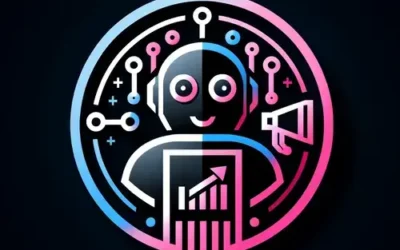Artificial Intelligence (AI) is rapidly transforming numerous industries, and healthcare is no exception. From diagnostics and treatment plans to drug discovery and personalised medicine, AI is revolutionising patient care and medical research. This technological advancement promises to make healthcare more efficient, accurate, and accessible, heralding a new era of medical innovation.
Diagnostics and Imaging
AI has shown remarkable capabilities in medical diagnostics, particularly in imaging. Traditional methods of interpreting medical images such as X-rays, MRIs, and CT scans can be time-consuming and prone to human error. AI algorithms, however, can analyse these images with astonishing speed and accuracy. For instance, AI systems can detect early signs of diseases like cancer, heart disease, and neurological conditions, often with greater precision than human doctors.
Personalised Treatment Plans
Personalised medicine is an emerging approach that tailors medical treatment to the individual characteristics of each patient. AI plays a crucial role in this by analysing large datasets to identify patterns that might not be apparent to human practitioners. By considering a patient’s genetic makeup, lifestyle, and other health data, AI can help devise personalised treatment plans that are more effective and have fewer side effects.
Drug Discovery
The process of drug discovery is traditionally long and expensive, often taking over a decade and billions of pounds to bring a new drug to market. AI is poised to accelerate this process by identifying potential drug candidates more quickly and accurately. By simulating and analysing the interactions between drugs and biological targets, AI can significantly reduce the time and cost associated with drug development.
Enhancing Patient Care
AI is also enhancing patient care by improving the efficiency and effectiveness of healthcare delivery. AI-powered chatbots and virtual assistants are increasingly being used to provide patients with immediate, accurate responses to their health queries, book appointments, and manage medications. These tools can significantly reduce the burden on healthcare providers and allow them to focus on more complex patient care tasks.
Moreover, AI systems can monitor patients’ vital signs in real-time, alerting healthcare providers to any abnormalities that may indicate a medical emergency. This continuous monitoring is particularly beneficial for managing chronic diseases such as diabetes and heart disease, where early intervention can prevent serious complications.
AI in Robotic Surgery
Robotic surgery is another area where AI is making significant strides. AI-powered surgical robots can perform complex procedures with greater precision and control than human surgeons. These robots can analyse data from previous surgeries to improve their performance and reduce the risk of complications. The use of AI in robotic surgery not only enhances surgical outcomes but also reduces recovery times and hospital stays for patients.
Ethical and Regulatory Considerations
The benefits of AI in healthcare are immense, but we must also consider substantial ethical and regulatory challenges. We need to address issues like data privacy, informed consent, and potential algorithmic bias carefully. Ensuring that AI systems are transparent, accountable, and aligned with ethical standards is crucial for their successful integration into healthcare.
The General Data Protection Regulation (GDPR) in the UK and Europe provides a robust framework for protecting patient data and ensuring the responsible use of AI systems. Additionally, regulatory bodies such as the Medicines and Healthcare products Regulatory Agency (MHRA) are developing guidelines for the safe and effective use of AI in healthcare.










